X
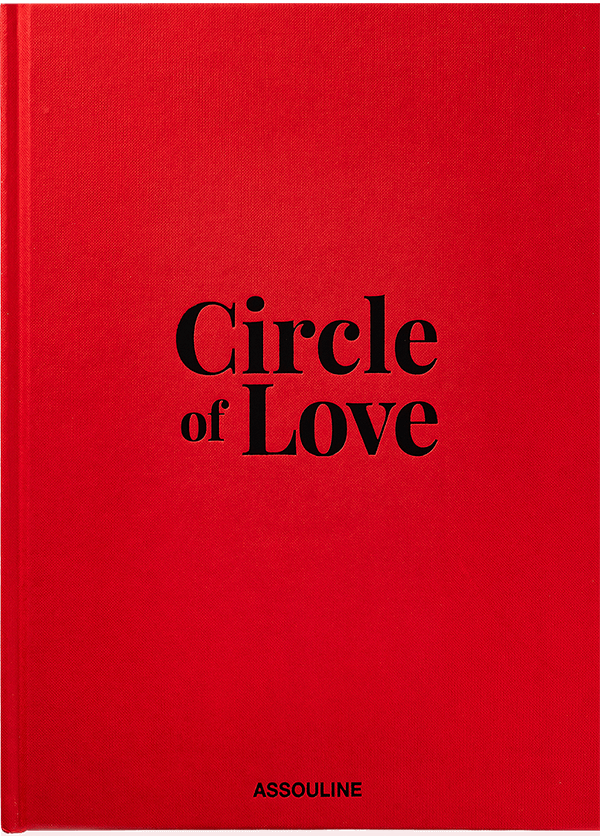
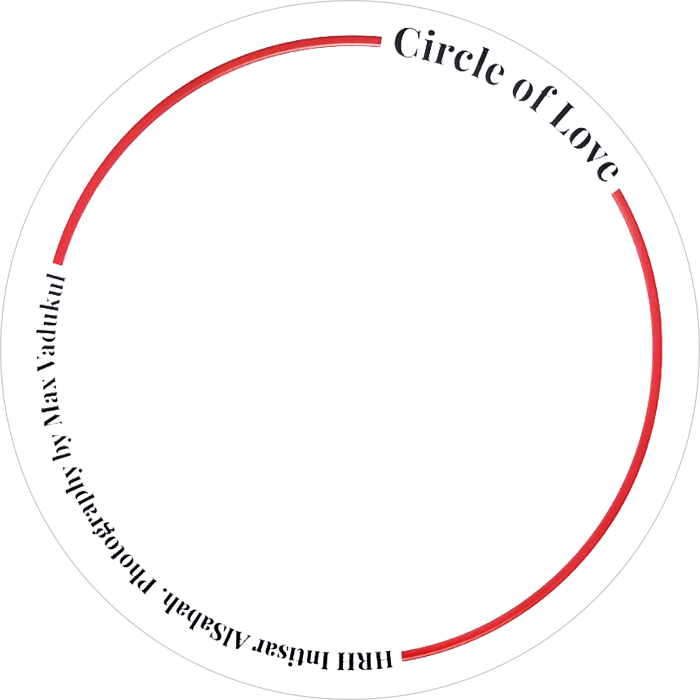
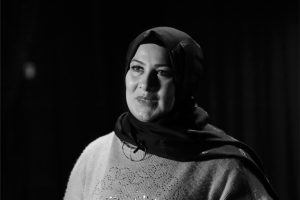
“ When I stood on the stage with everyone in my drama therapy group looking at me and listening attentively, I felt something I never felt before in my life.
Not being an important person, but a visible person.
I felt like a person that exists. I saw changes in my daily life, I became stronger because I finally understood that I am a person, not just a vase.”
My name is Maya, I am 46 years old, and I live with my husband and three children in the Shatila Refugee Camp in Beirut.
I was born in the Naher El Bared camp in Tripoli and spent most of my early years there. My parents had a total of seven children including me, three boys and four girls. My father would leave the house early in the morning and come home late at night, trying his best to provide for us to eat and survive. And my mother, God rest her soul, did everything she could to keep us happy.
When I was little, I was usually shy and quiet, and because of the harsh circumstances in which we grew up, I had no friends and was unable to complete my education. I always felt like I was nobody, like a vase on a table or an old plate in the cabinet. Even though I was close to my elder sister, growing up with six siblings made it difficult for me to learn to speak when I wanted to. I had always had the impression that I wasn’t being seen or heard.
My husband wanted to go to Beirut for better job possibilities and a better life after we got married. So, we went to the Shatila Refugee Camp, and I took care of my three children, ensuring that they received the attention and love they needed. My husband is a good man, but he’s also reserved and conservative. Being a woman and a mother in the Shatila camp is also extremely challenging- you constantly worry about your safety and the safety of your children, as well as about their future.
“ I was used to keeping quiet about my personal life as I was always told that people will spread and share everything I tell them, and I must keep my life private, but seeing other women being so comfortable with sharing and expressing gave me the courage to speak about myself. Even in small parts, I felt good about it. I was heard, listened to, by the group and everyone in the room, unlike during my childhood. This was something new to me.”
In early 2020, I was contacted by the social workers in Beit Atfal Asmoud to attend a theatre programme. I’ve always been interested in these activities and quickly signed up because I wanted to do something for myself, not just my family. As a result, I enrolled in the Intisar Foundation drama therapy programme.
The first two sessions were very fun- it appeared that we were playing games and moving around a lot. As the training continued, I began to see a change in myself.
I was quite shy when I first started out and couldn’t speak openly about myself. Around me, many of the ladies spoke freely about their experiences during the war, life in the camp, their children, and other issues that concerned them.
I was used to keeping quiet about my personal life as I was always told that people will spread and share everything I tell them, and I must keep my life private, but seeing other women being so comfortable with sharing and expressing gave me the courage to speak about myself. Even in small parts, I felt good about it. I was heard, listened to, by the group and everyone in the room, unlike during my childhood. This was something new to me.
Until then, my voice was reserved for calling on my children and speaking to the sellers in the market. In the drama therapy sessions, I realised that I could use my voice to speak about myself, not just to manage my daily life.
When I stood on the stage with everyone in my drama therapy group looking at me and listening attentively, I felt something I never felt before in my life. Not being an important person, but a visible person. I felt like a person that exists. I saw changes in my daily life, I became stronger because I finally understood that I am a person, not just a vase.
I feel that the Intisar Foundation drama therapy programme gave me the push to change for the better, with my family and towards myself. I hope all women get the chance to experience the drama therapy programmes by Intisar Foundation.
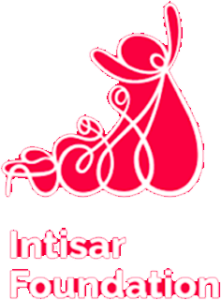
Officially registered as a humanitarian organisation with the Charity Commission for England and Wales in 2019, Intisar Foundation is the first charitable organisation in the Middle East dedicated to providing psychological support programmes of drama therapy to Arab women affected by the brutality of war and violence.
Intisar Foundation
McCarthy Denning, Suite 102,
70 Mark Lane, London, EC3R 7NQ
UK Registration Charity Number: 1182384
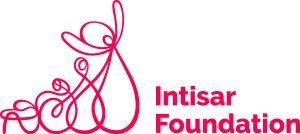
For more than a month, we are witnessing how international humanitarian law fails to protect Palestinian mothers and children.
Day after day, we have been lamenting and denouncing new acts of violence that brought injustice and the bemoaning loss of innocent lives in Gaza.
And yet, Palestinians in Gaza still face new perils with every next hour.
In writing this letter to the world as a demand for action to end this suffering, I join millions of others who have condemned the continued Israeli aggression and call for an immediate ceasefire.
We at Intisar Foundation also invite you to join us in working on preventing this trauma to linger and gnaw through another generation of Palestinians, and Arabs in general.
The mission of Intisar Foundation is to bring Peace to the Arab world through the psychological recovery of Arab women traumatised by war and violence, which can result in the women stopping the continued cycle of violence inflicted on or by them.
In this way, our work helps Arab homes traumatised by violence become more Peaceful again.
The ripple effect of this outcome can be that Peace flowcharts from one Arab home to another, from one Arab community to another, reaching and affecting our whole region.
In its very essence, therefore, Intisar Foundation’s work has always been about breaking the chains of trans-generational trauma.
While I salute people around the world confronting this injustice – from the world’s best universities, influencers, civil society activists and organisations, to ordinary people taking to streets and social media to raise their voices for Peace – I am now certain that we will not resolve the Palestinian crisis only with ceasefires, humanitarian aid, or rebuilding their homes and neighbourhoods.
We need to recover and protect the souls of current and future generations of Palestinians, and all Arabs, from this trauma.
To that end, Intisar Foundation is committed to turning this terrible man-made tragedy into a healing woman-led victory for Palestine, for humanity!
Intisar AlSabah
Leave a Reply